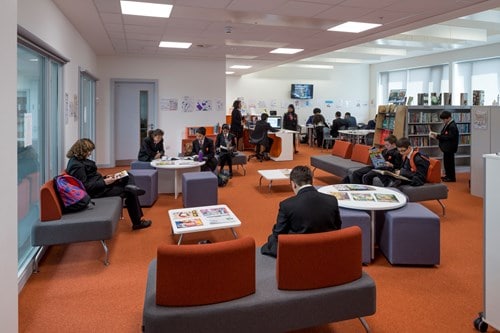Research finds “institutional racism” in shifting secondary school examinations and programs
Writing for the Times Educational Supplement, Marcus George highlights forthcoming research findings from the University of Birmingham’s David Gillborn about the effect of Britain’s reforms in secondary school education.
Gillborn evaluates that the changes in GCSE examinations, held at the end of Year 11 (the equivalent of sophomore year in a US high school), and the introduction of a new English Baccalaureate program have widened the gap in attainment between white and Afro-Caribbean students.
The introduction of tougher GCSE benchmarks for schools has had “a marked regressive and racist impact” that “served to maintain black disadvantage”, a leading professor of race studies has claimed.
A research paper, due to be published in the British Educational Research Journal, compares the odds of white British and black Caribbean pupils meeting the benchmark over the 25-year period since GCSEs were introduced in 1988.
Initially, the government benchmark was for pupils to gain five GCSEs at grade C or above. In 2006, this was changed to five GCSEs at grade C or above, including English and maths, and in 2011 the English Baccalaureate (EBacc) was introduced.
The researchers examined the odds of white British students achieving the benchmark, relative to their black peers. When the resulting odds ratio is “one”, the two groups are equally likely to meet it. A higher number means white pupils are more likely to achieve it, with “two” meaning white pupils are twice as likely to do so.
The paper says that the introduction of the new benchmarks increased the odds ratio in favour of white pupils, compared with black Caribbean pupils.
The 2006 reform resulted in the ratio rising from 1.69 to 1.90 between 2005 and 2006, before it fell for four consecutive years.
When the EBacc was introduced, the odds ratio rose from 1.58 to 2.20, a level not seen since 2003, before then starting to fall again.
“Institutional Racism”
Professor David Gillborn, director of the Centre for Research in Race and Education at the University of Birmingham, who co-authored the paper, told Tes: “This is a story about institutional racism, but those processes work for other groups as well. Any time you raise the bar, you will raise the inequity for any disadvantaged group because of the way they are distributed through the system.”
Former Ofsted chief inspector Sir Michael Wilshaw pointed out that the GCSE benchmarks “hold schools to account rather than individual children”, although Prof Gillborn said employers and universities are influenced by the benchmark when considering applications.
Sir Michael dismissed the argument that “moving the goalposts” has a “racist impact” as “nonsense”.
He added: “I think we are going down a really bad road of not treating children fairly if we have lower expectations of one group over another. It’s not fair to the children and it’s certainly not fair to society.”
A Department for Education spokesperson said: “We are driving down the attainment gap between all disadvantaged pupils and their peers. The attainment gap has been steadily decreasing since 2011.
“We are determined to ensure that all children, regardless of their background, get the education they deserve. In 2015-2016 black pupils had higher than average Progress 8 scores, showing that our reforms are working.”

